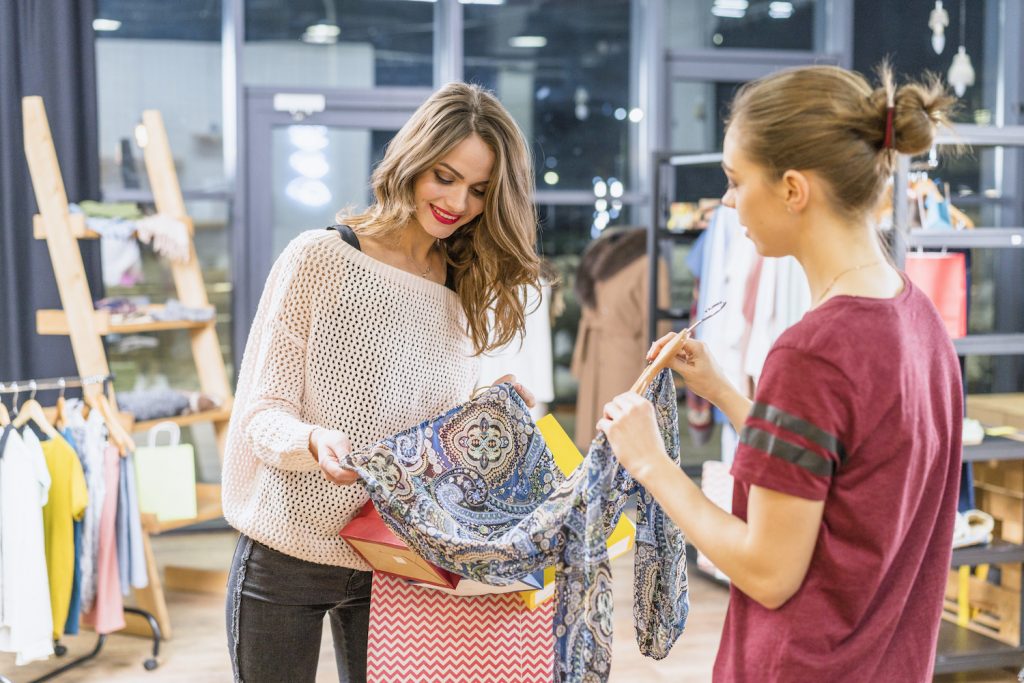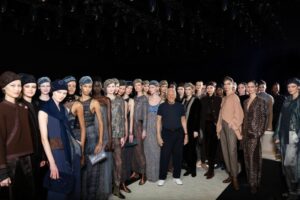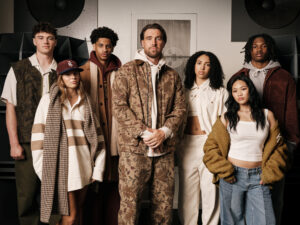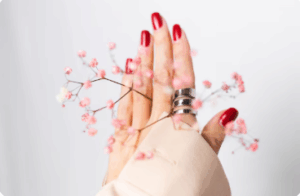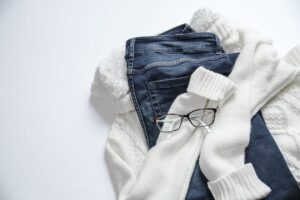Driven by consumer demand for sustainability, inclusivity, and personalisation, wholesale fashion trends are seeing a dramatic transformation as we draw near to the end of 2024. For the industry, these trends aren’t just an option—it’s a necessity in an increasingly competitive market.
Wholesale fashion trends refer to popular styles and trends that are prevalent in the fashion industry and widely adopted by fashion retailers and wholesalers. These trends typically reflect the latest consumer preferences, seasonal shifts, and cultural influences. In wholesale fashion, trends often influence bulk purchasing by retailers who plan to stock their stores with items that are in high demand.
Years after the global pandemic sparked an e-commerce revolution, brands are strengthening their wholesale distribution strategies. However, the dynamic between vendors and brands has evolved into a collaborative partnership. Today, both sides are working closely, in marketing efforts and by sharing invaluable customer insights. In some cases, traditional bulk-order models are being replaced with flexible approaches, such as revenue-sharing agreements with concessions or drop-shipping.
That said, which wholesale fashion trends are currently shaping the industry, and how can retailers stay ahead of the curve? The wholesale fashion industry is experiencing remarkable shifts, driven by evolving consumer expectations, sustainability initiatives, and cutting-edge technology. The growing demand for ethically produced, personalised, and functional fashion is pushing brands to reimagine their collections for a selective, discerning audience. Wholesale buyers are no longer just looking for products—they’re seeking pieces that align with key fashion trends.
This heightened selectivity is transforming how brands develop their wholesale offerings, ensuring they stay relevant and competitive in an ever-evolving market.
Related Content:
Table of Contents
- Top wholesale fashion trends
- Top 10 FAQs on Wholesale Fashion Trends 2024
- Key Takeaways
Top wholesale fashion trends
Sustainability Takes CenterStage
After the devastation wrecked by the global pandemic, fashion businesses perceived to thrive in 2026 and beyond are those focusing on sustainability. Today, it’s imperative for fashion brands to think sustainably in order to look after our planet. Thankfully, there are an increasing number of fashion brands playing an integral role in promoting responsible practices, empowering consumers, fostering innovation and contributing to a sustainable and ethical future.
By supporting sustainable fashion brands, individuals can contribute to positive change in the fashion industry and make a significant impact on global sustainability efforts, pushing brands to prioritise ethically sourced materials, environmentally friendly production methods, and transparent supply chains. Retailers looking to make smart wholesale purchases are increasingly stocking brands that emphasise sustainable practices, including the use of recycled fabrics, organic cotton, and low-impact dyes.
Wholesale buyers are also focusing on brands that offer certification for their sustainability claims, such as Fair Trade, GOTS, and OEKO-TEX. This trend not only appeals to environmentally aware shoppers but also reflects a broader shift in the industry towards circular fashion, where recycling and reusing garments become standard practice. As sustainability continues to drive purchasing decisions, wholesale fashion trends are shifting toward long-lasting, versatile pieces that minimise environmental impact.
Gender-Neutral and Inclusive Fashion

Diversity and inclusivity has taken a quantum leap this decade. Image: Tommy Hilfiger
Diversity and inclusivity has taken a quantum leap this decade; it is more than just adaptive apparel. plus size or make-up for every skin tone—it is a holistic approach that has transcended size variations to include race, gender, disability, and age as the dimensions of inclusion.
In response to growing societal shifts towards inclusivity, gender-neutral and unisex fashion has become a crucial wholesale trend. Retailers are increasingly stocking collections that move beyond traditional gender lines, catering to consumers who seek fluidity in their style. Wholesale buyers are now gravitating towards brands that offer androgynous designs—pieces that are versatile enough to appeal to a wide audience regardless of gender identity.
This trend extends to size inclusivity as well, with more fashion brands offering extended sizing options in their wholesale collections. Retailers who embrace this movement can tap into a growing demographic of customers who value inclusivity, diversity, and authenticity in the fashion industry. By focusing on inclusive designs and fits, wholesale buyers ensure that they cater to the modern shopper’s expectations.
Athleisure’s Enduring Appeal
Athleisure continues to dominate wholesale fashion trends. While it initially surged during the pandemic, its appeal shows no signs of slowing down. Consumers are prioritising comfort and functionality in their wardrobe choices, making athleisure a staple for both everyday wear and casual work attire. Wholesale buyers are focusing on stocking versatile pieces that transition from workouts to social gatherings seamlessly.
Wholesale brands offering athleisure are increasingly innovating with technical fabrics that promote comfort and performance, such as moisture-wicking materials, stretchable fabrics, and pieces with ergonomic designs. Retailers that capitalise on this trend are finding success by offering ranges that cater to both fitness enthusiasts and those simply seeking stylish, comfortable clothing for everyday wear.
Vintage and Retro-Inspired Fashion
Nostalgia continues to influence wholesale fashion, with vintage and retro-inspired clothing enjoying renewed popularity. Wholesale buyers are seeing a surge in demand for styles from past decades, such as ‘70s bohemian dresses, ‘90s grunge aesthetics, and ‘80s power suits. Consumers are drawn to the timeless appeal of retro fashion, while also appreciating its connection to sustainable shopping practices.
Retailers that embrace vintage-inspired fashion can attract consumers who are searching for unique, one-of-a-kind pieces. Wholesale collections that reinterpret classic styles with a modern twist are particularly popular, as they cater to both the nostalgia-driven shopper and those looking for something fresh. Wholesale buyers are keenly aware of this fashion trend, stocking retro designs that are updated with modern fabrics and production techniques to appeal to today’s fashion-conscious audience.
Personalised and Customisable Fashion
Personalisation is becoming a major trend in wholesale fashion as consumers increasingly seek clothing that reflects their individual identities and tastes. From monogrammed pieces to customisable accessories, wholesale buyers are focusing on brands that offer unique, personalised touches. This fashion trend is popular in streetwear and accessories, where individuality and self-expression are key drivers of purchasing decisions.
Wholesale brands that provide options for customisation—whether through embroidered initials, patchwork designs, or mix-and-match elements—are helping retailers offer something unique to their customers. Personalised fashion allows retailers to provide exclusivity, making shoppers feel as though they own something truly special. As personalisation continues to grow in popularity, wholesale buyers are stocking collections that give consumers the freedom to express themselves through their clothing and accessories.
Top 10 FAQs on Wholesale Fashion Trends 2024
What are the biggest wholesale fashion trends for 2024?
The major wholesale fashion trends for 2024 include sustainability-focused products, gender-neutral and inclusive fashion, athleisure’s ongoing appeal, vintage and retro-inspired styles, and personalised or customisable fashion. Each of these trends reflects a broader shift towards consumer demand for individuality, eco-consciousness, and comfort.
Why is sustainability such a key trend in wholesale fashion?
Sustainability has become a driving factor in fashion due to increasing consumer awareness of environmental issues. Brands that use eco-friendly materials, ethical production practices, and transparent supply chains are in higher demand. Wholesale buyers are prioritising collections that meet these standards to appeal to the growing segment of eco-conscious consumers.
How is inclusivity influencing wholesale fashion?
Inclusivity in wholesale fashion is evident in the rise of gender-neutral collections and size-inclusive designs. Wholesale buyers are stocking brands that cater to diverse body types and offer unisex pieces, reflecting a cultural shift toward fashion that moves beyond traditional gender norms and promotes body positivity.
What role does technology play in wholesale fashion trends?
Technological advancements are crucial in shaping trends such as athleisure, where technical fabrics enhance comfort and performance. Technology also plays a role in personalisation, where brands offer customisable features through digital platforms, allowing consumers to tailor their purchases to their preferences.
How can retailers capitalise on the personalisation trend?
Retailers can take advantage of the personalisation trend by stocking wholesale collections that offer customisable options. This could include monogramming, colour choices, or mix-and-match elements. Personalised fashion items help retailers stand out by offering unique products that cater to individual tastes and preferences.
What is driving the popularity of vintage and retro-inspired fashion?
Vintage and retro styles tap into consumers’ desire for nostalgia and timeless fashion. These styles often represent a sustainable choice, as they promote reusability and the repurposing of classic looks. Wholesale buyers are responding to this demand by offering collections that reinterpret past styles with modern updates.
Will athleisure continue to be a trend in 2024?
Yes, athleisure remains a dominant trend in 2024 due to its versatility and comfort. Consumers seek clothing that works for both casual wear and active lifestyles, and wholesale buyers are stocking pieces that blend fashion with functionality. Athleisure items that feature performance-driven materials and stylish designs are especially popular.
How important is size inclusivity in wholesale fashion trends?
Size inclusivity is increasingly important in 2024, with more consumers expecting brands to offer a wider range of sizes. Wholesale buyers are seeking brands that offer extended sizing to ensure that all customers feel represented. This inclusivity helps retailers tap into a broader demographic and respond to the demand for more accessible fashion.
What is the impact of the circular fashion movement on wholesale trends?
Circular fashion promotes recycling, reusing, and repurposing garments, aligning with the sustainability trend. Wholesale buyers are looking for brands that emphasise longevity and versatility, offering high-quality products that reduce waste. Collections that can be easily recycled or that use sustainable materials are becoming more prominent in the wholesale market.
How can retailers stay ahead of wholesale fashion trends?
Retailers can stay ahead by closely monitoring industry reports, attending trade shows, and maintaining strong relationships with wholesale brands that are at the forefront of innovation. It’s essential to understand consumer preferences, adapt to shifting market demands, and stock collections that reflect the latest trends, such as sustainability, inclusivity, and personalisation.
Key Takeaways
- Wholesale fashion in 2024 is being shaped by several trends, with sustainability leading the way.
- Fashion brands that prioritise eco-friendly materials, ethical production, and transparent supply chains are appealing to both retailers and consumers.
- The rise of circular fashion and the shift toward long-lasting, versatile pieces highlight the industry’s commitment to reducing its environmental impact.
- Wholesale buyers are increasingly favouring brands that offer certifications for sustainability, ensuring they meet the growing demand for green fashion. This focus on sustainability is not only beneficial for the planet but also aligns with the preferences of today’s eco-conscious shoppers.
- The growing movement towards inclusivity in fashion, with gender-neutral collections and size-inclusive designs taking centerstage. Wholesale buyers are stocking fashion brands that cater to a broader demographic, moving beyond traditional gender and size constraints. This wholesale fashion trend is driven by the consumer desire for fashion that reflects diversity and authenticity.
- Retailers who embrace inclusivity are more likely to attract a loyal customer base, as shoppers increasingly value brands that offer both diversity in design and accessibility in sizing.
Final words
Wholesale fashion trends are constantly evolving, shaped by the intersection of consumer preferences, societal shifts, and technological advancements. Sustainability, inclusivity, and personalisation are just a few of the trends redefining the industry and transforming retail strategies. Wholesale buyers who stay attuned to these trends can ensure they remain competitive in an ever-changing market. By stocking products that reflect these forward-thinking movements, retailers can appeal to a broader audience and thrive in the dynamic world of fashion.
Jasmeen Dugal is Associate Editor at FashionABC, contributing her insights on fashion, technology, and sustainability. She brings with herself more than two decades of editorial experience, working for national newspapers and luxury magazines in India.
Jasmeen Dugal has worked with exchange4media as a senior writer contributing articles on the country’s advertising and marketing movements, and then with Condenast India as Net Editor where she helmed Vogue India’s official website in terms of design, layout and daily content. Besides this, she is also an entrepreneur running her own luxury portal, Explosivefashion, which highlights the latest in luxury fashion and hospitality.


